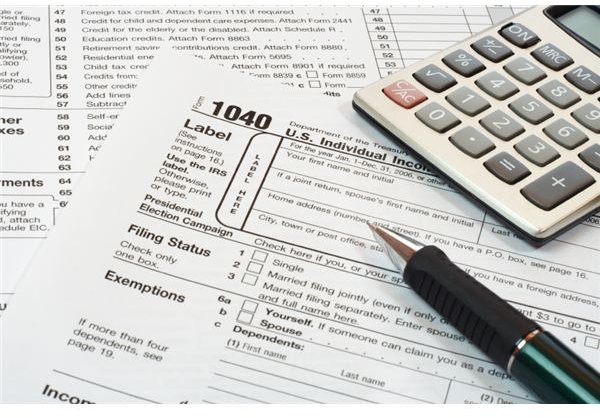Are Property Taxes Deductible from Income Tax Returns?
Income Tax
Income tax is a tax that the government levies against your income wherever that income may come from. This may be income from a job, a second job, odd jobs you do for earning extra money, freelance assignments, profits you make from selling things you may own, rental income, inheritance money, earnings from your dividends paid from stock you own, interest you earn on your savings accounts–you get the picture. How much tax and at what rate you pay on each of these kinds of income depends upon your tax bracket and if you’re lost on how income tax works, you should seek the help of a tax professional. However, for most people the income tax they pay is tax on the income they earn from their regular jobs. Bear in mind that depending on where you live, you may pay state and local income tax in addition to your federal income tax. Some states do not have state income tax.
Property Tax
Property taxes are levied by states as well as local governments, be they county, city, town or village, against all property owners, both residential and commercial (with certain exceptions for non-profit organizations). It is possible that more than one local taxing authority receives portions of the property taxes you pay. Thus, a percentage of your property tax may be going to your state, county, city, and local park authority, for example. The funds raised from taxes collected are used to run the local community and meet other financial obligations such as providing public education, fire, police, and emergency services. Because the budgets of local governments are so heavily dependent on property taxes, they go as far as selling off the taxes of homeowners who are behind on paying their taxes to investors. These investors buy the taxes, pay off the local governments who need the cash immediately and make a guaranteed return when the homeowners pay what they owe. Homeowners who do not pay up stand the risk of losing their properties altogether.
Are Property Taxes a Deductible Expense?
What is the relationship between income and property tax and are property taxes deductible from income tax returns? When you file your federal income tax, you are allowed to make certain deductions which reduce your taxable income and, therefore, the amount of tax you actually pay. Many people take the standard deduction allowed for their income level while others itemize deductions. Before 2008, only people who itemized deductions could deduct their property taxes. But in tax years 2008 and 2009, even those who do not itemize are entitled to a limited property tax deduction: up to $500 for single taxpayers and $1,000 for married couples filing a joint tax return, depending on one’s tax bracket. The actual deduction is based on the lower of the following: your proper tax bill or $500 (if single) and $1,000 (if married and filing jointly). This change in tax regulations is especially beneficial to those who have owned their homes for a long time, are close to paying off their mortgages, and can’t usually claim significant deductions from mortgage interest payments.
For those who itemize, the story remains the same. The entire amount of your property tax is deductible provided it is based on the assessed value of your property and charged uniformly for all properties in the same region based on the same formula. Any tax that is particular to your own property, such as taxes for improvements to your property or street, like sidewalks, sewers, and street lights for example, are not deductible.
Please bear in mind that this discussion of property taxes and deductions apply to federal income tax returns. What applies to state income tax returns differs by state, so check with your state tax authority to find out if property taxes are a deductible expense in your state.
Image Credit:Tax papers by Chuck Gallegher
